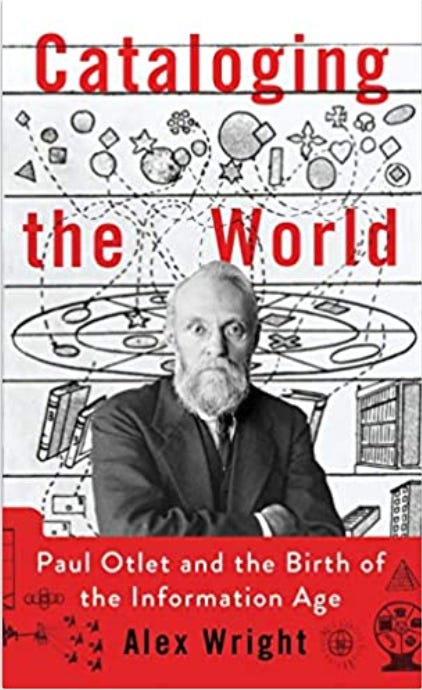Hello, Adversity Weekly Roundup #19 - June 10, 2023
Biographies of failures, toxic frenemies, the rise of rage rooms, and a quote that's been on my mind

Happy Saturday!
Welcome to the 19th edition of the Hello, Adversity Weekly Roundup. I hope you had a great week.
I must admit, this newsletter was in peril on Wednesday afternoon. It has been a rough week for my respiratory system, between allergies and the wildfire smoke that enveloped the Northeast. Even being inside with multiple air purifiers running, it wasn’t fun.
Fortunately, I am feeling better, although I am not 100%. I think I managed to write coherent sentences below, which I am told is key for audience retention.
Without further ado, here are this week’s links:
What I enjoy about Substack’s Notes feature is how easy it is to discover the work of other writers on the platform. I never know what I will stumble upon on a given day.
Recently, I came across this thought-provoking piece by Henry Oliver from 2021. Oliver argues that more biographies should be written about people who have failed in their life pursuits. This is not so we can feel better about ourselves at their expense. Rather, these types of stories offer many learnings and takeaways that we can apply to our own lives.
Says Oliver:
The point of biography is to set an example, to teach us how other people did the things we want to do. That might be something grand like live a good life, or it might be something more mundane like manage a small company. Whatever it is, the genre suffers from selection bias. Only the successful get biographies.
But we will not all be successful, and if that is our main criteria we won’t learn as much from biography as we could.
To illustrate this point, Oliver reviews the book Cataloging the World: Paul Otlet and the Birth of the Information Age, by Alex Wright. Wright tells the story of Paul Otlet, a bibliographer whose idea of creating a universal system of information retrieval (a precursor to the Internet, more or less) was decades ahead of his time. Otlet used thousands of index cards to painstakingly develop a system to categorize and reference basic facts that could be used for myriad research purposes.
Unfortunately for Otlet, his efforts went mostly for naught. Not only was his bibliography system shunned by mainstream society, it was also mocked by other librarians and bibliographers. Many years later, his work would be sidetracked by the outbreak of World War I and the death of his son. Then, after getting his career back on track, his ambitions were thwarted for good once the Nazis arrived in Belgium and destroyed his life’s work.
If that wasn’t enough, decades later, many of his ideas about information retrieval and the ability to manipulate different types of data would come to fruition with the advent of the Internet. Unfortunately, his visionary ideas went undiscovered for many years. He was a man who simply lived in the wrong era.
Despite Otlet’s repeated setbacks in life, Oliver lists many different lessons a reader can learn from Otlet’s example, from implementing groundbreaking ideas to the role of luck in one’s career. Cautionary tales can often be more useful to a reader than stories of unencumbered success. The full spectrum of human experience—failure included—can be valuable if you know what to look for.
This was an interesting post by Wharton professor and author Adam Grant about the surprisingly destructive impact of frenemies. According to Grant, it seems intuitive that our enemies would give us the most stress, but instead, it’s the people we both love and hate at the same time that cause us to reach for the Tums:
In one experiment, when people were under stress, merely reminding them of their ambivalent relationships led to greater heart rate reactivity than priming them with their negative relationships. In another study, ambivalent relationships predicted higher coronary artery calcification among older married couples.
Grant found this result surprising as well, although with a little more investigation, it makes sense: we like to put people into clear categories, such as friend or enemy. Good or evil. Giver or taker. With good friends and mortal enemies, we know where they stand. But someone who is a friend and an enemy? It makes us uneasy. We never know what to expect from that person, and that uncertainty frays our nerves.
I like Grant’s proposed solution:
In my view, if a relationship is worth maintaining, it’s worth improving. And that’s not a job for you to do alone. It requires a conversation about what’s working and what’s not.
Not all frenemies are worth keeping in your life, but if you want to try to improve your chances at a better relationship, honesty and open dialogue are crucial.
Worst comes to worst, you end up making an enemy and reducing your stress level.
Earlier this week, I saw someone on social media mention the term “rage room”. I had no idea what they meant, so I looked it up. Apparently, rage rooms are not only a thing, they are rapidly growing in popularity, with new locations popping up all over the world.
The article above is from 2018 but is a good primer on what these rooms entail:
“Rage rooms, also known as smash rooms or anger rooms, have opened in cities around the world, and they offer a safe place for people to shatter away their anger – literally. You can hurl a plate across a room, take a sledgehammer to an old computer or kiss a framed photo of your ex goodbye with a golf club.”
This is a fascinating concept. We have so much pent-up frustration these days; the more healthy and fun ways to let off steam, the better. Looking at a map of Connecticut, I see one rage room located next to a casino. I don’t think that was a coincidence.
Since I am trying to incorporate more visuals into this weekly email, here is a short video demonstrating the experience:
Sadly, rage rooms and ax-throwing bars were not around in my younger years, but I could see how this would be a lot of fun.
Against my better judgment, I must ask: what object would you want to smash? I think I would go for lawn gnomes.
A quote I’ve been thinking about recently:
“Never let the future disturb you. You will meet it, if you have to, with the same weapons of reason which today arm you against the present.” - Marcus Aurelius
I have been thinking a lot about the future these past few months. I am a natural worrier, and lately, there has been a lot to worry about.
This quote from Marcus Aurelius is a helpful reminder to live in the present, but more importantly, to trust that no matter what the future holds, we will be ready to face it.
We often wonder how we will meet future challenges, which seem so scary and overwhelming in the present. The answer is we will meet them in the same way we’ve met every previous challenge. We will use what we’ve got, whether it’s our support system, our faith, our reason, our resources, or something else.
Besides, we don’t know what the future holds. We don’t have a crystal ball. What we often expect will transpire usually doesn’t happen in the way we think it will, if at all.
If you have a story you’d like me to include in a future newsletter, please email me at HelloAdversity@substack.com or leave a comment below.
Follow Hello, Adversity on Instagram!





I wouldn't be surprised if rage rooms were inspired by the classic printer-destruction scene from Office Space! 😂
The "frenemy" piece hit home, not because I've ever had fremenies per se, but because the same phenomenon exists in relationships that are—for one reason or another—hot and cold. As I've grown up, I've shedded personal and professional ties with people who treat me inconsistently, and that's undoubtedly increased my day-to-day feelings of security and contentment.
Quote of the day “Worst comes to worst, you end up making an enemy and reducing your stress level.” 😂